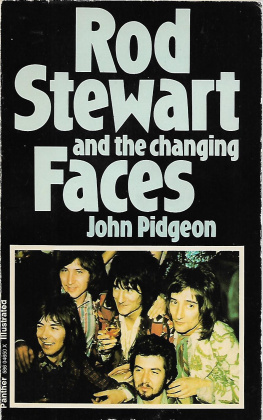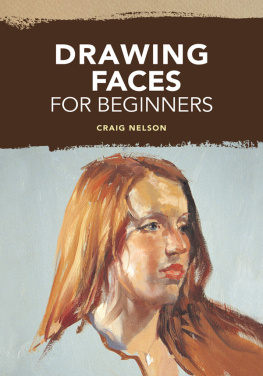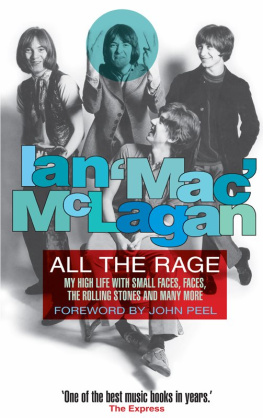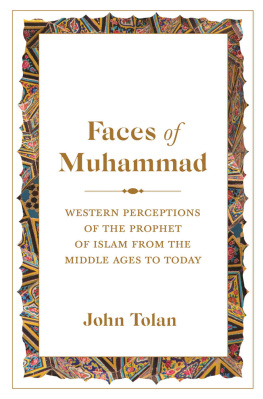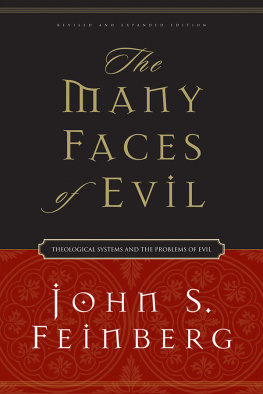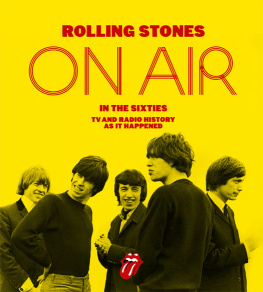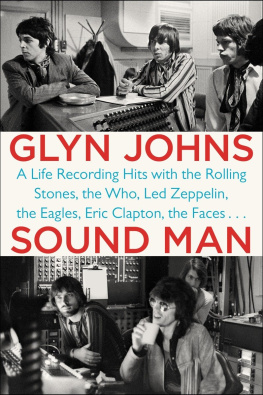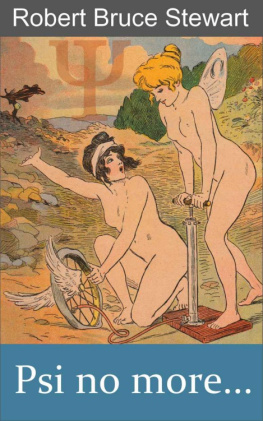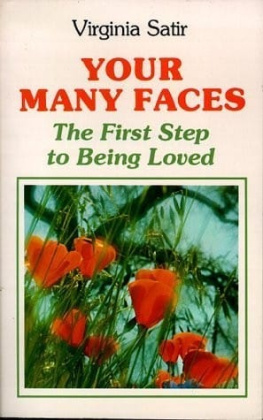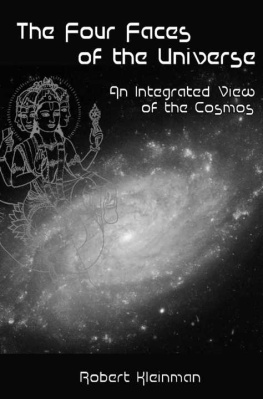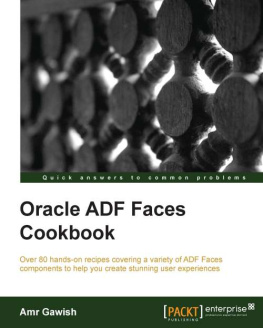ONE : THE SMALL FACES: TO ITCHYCOO PARK AND BEYOND
The popular image of mods in 1965 was that of Carnaby Street and Ready Steady Go !: a narcissistic, harmless Hitler Youth, clean-cut, neurotically fashion-conscious, and dancing, always dancing. The dark side of this army of rubber-legged tailors dummies turned up in Bank Holiday newsreels of seaside scuffles or occasional pill scares in the popular Sundays, but an older generation that had recently learned to abhor long hair and scruffy clothes was deluded for the most part by the mods superficial respectability.
Mod was by then a mass movement, exploited in high-street boutiques across the country. It had more in common with the merchandising of Beatlemania a year before than with its own origins, for it had started out as a genuinely exclusive cult, an elite that was asocial rather than antisocial, that pursued its own esoteric, even ascetic lifestyle. The first mods dedication to exclusiveness made them a secret society. They had their own constantly shifting styles of dress, their own haircuts, their own drugs, their own vocabulary, their own music, their own dance steps, their own strut. The week-end was their time. They would speed through a clear amphetamine tunnel that stretched from Friday to Sunday, talking, buzzing, always moving, eating little, sleeping not at all, existing outside society.
They met at the Scene in Ham Yard off Great Windmill Street in Londons West End, an all-night club where groups played, but whose main attraction was Guy Stevens record sessions. Stevens collection of obscure black American records was the basis of the mods musical tastes and a cornerstone of the soul boom of the mid-sixties. At a time when it was commonplace to hear the Beatles, and hip to listen to Jimmy Reed, John Lee Hooker and Howlin Wolf, Stevens was playing James Brown and Otis Redding, Don Covay, Solomon Burke, the Miracles, the Impressions and Major Lance.
As the mods numbers grew, so did souls popularity; and it was soul that spawned the Small Faces. As Steve Marriott recalls, The common denominator was all digging that kind of music and copying it, which is what we were doing in our own way, because we loved it, because it was the best source of inspiration we had. The influences were so good and the music we had around was so healthy - Stax, Tamla, Atlantic, so many good imports. Their first record was an unashamed pinch from Solomon Burkes Everybody Needs Somebody to Love and it was a hit.
Ironically, because Watcha Gonna Do about It used feedback to disguise Marriotts rudimentary skill as a guitarist and because the Small Faces looked like mods, it was generally assumed that they were cashing in on a musical style and an image that had already proved successful for the Who. In fact, whereas the Small Faces were mods, the Who had merely been dressed that way: a West London group that had worked through instrumentals, the Lennon/McCartney songbook and R&B (as the Detours) before Peter Meaden, a hustler publicist and Scene club regular, had them kitted out in Carnaby Street and French-cropped in the Charing Cross Road. Meaden even converted Slim Harpos Got Love If You Want It into an early, unsuccessful mod anthem, Im The Face, released under the name of the High Numbers on the Fontana label in 1964. Their first hit as the Who, I Cant Explain, owed more to the feel of producer Shel Talmys work with the Kinks than to the groups arbitrary allegiance to the mods, though its theme, like that of the subsequent Anyway, Anyhow, Anywhere and My Generation, was derived from Pete Townshends preoccupation with the mods lifestyle.
The Whos assumed status as leaders of the gang was no more than a convenient marketing device. Nevertheless, it earned them a residency at the Marquee club in Wardour Street and an appearance on Ready Steady Go! when I Cant Explain was released in January 1965. The record entered the Top Twenty two months later and eventually reached No 8. The group had another Top Ten hit with Anyway, Anyhow, Anywhere in June before the Small Faces Watcha Gonna Do about It came out in August.
The Small Faces were formed in the East End of London as a result of a meeting between Ronnie Lane, guitarist with the local Pioneers, and Steve Marriott, a former child actor and previously leader of the Frantics and the Moments. They met in the J 60 Music Bar in East Ham, where Marriott worked for pocket money on Saturdays; Lane was buying a bass. You couldnt get a bass player for love nor money down the East End, he recalls, thats why I switched to the bass. I had this job working in Selmers, the amplifier people, it was in a little soundproof room with a Fender Stratocaster and a Fender bass. They wheeled in the amps and you plugged in and played: if it worked, you chucked it out one way, and if it didnt you chucked it back down the line again. So I started messing about with the bass in my dinner hour, and it was such a bastard trying to get a bass player down the East End that I thought, I dont mind being a bass player - I quite liked the idea. I was getting very heavily involved with Booker T. and the MGs at the time, and I liked that approach of Its not what you play, its what you dont play. So I went home and said to the old man, because hed already bought me a guitar on the HP, Would you mind very much if I dropped it in for a bass? He wasnt too keen on the idea, but I told him at least it meant I could get work in a band because there werent any bass players. He said all right, so Saturday we went off down to the J 60 Music Bar. I knew what bass I was after, I wanted a Harmony bass - forty-five quid it was. I walked in the shop and told this little geezer I wanted to have a look at a bass, and he asked which one. I said the Harmony. Ooh, good bass, that, he said. And it was Steve. I remembered his face because me and Kenny (Jones) had played with him in another band somewhere down in Ilford, when he was with Steve Marriotts Moments, and he was really shit hot - his band blew us right off stage. Anyway, he was very enthusiastic about me buying this bass, and I started talking to him about Booker T. and some of the sounds I was really getting involved with, and it ended up I went home with him when the shop closed. And he had the most amazing collection of records. Id never heard of half the people, people like Bobby Bland, and he had the whole lot. He really turned me on, and after that we started seeing a lot of each other.
Lane and Kenny Jones were then playing in a Semi-R&B band with a pub residency on Friday nights. Lane invited Marriott along to jam. We started drinking whiskies, he says, and it was the first time Id ever really drunk any. There was this false sense of bravado about how much the pair of us could put back and in the end we got totally pissed. Steve got hold of the microphone and started doing his bit, and he smashed up the piano. So we all got the bullet. And, of course, my name was shit, because Id brought this character down this pub and blown a really good gig. So after that I said to Kenny, Dyou fancy coming with this geezer, because Im going with him?
Marriott gave up playing piano, took over the payments on Lanes Gretsch guitar and began to teach himself some chords. He also recommended an organist, Jimmy Langwith. According to Jones, We went round and had a little rehearsal with him in his parents pub, and Steve showed him three or four chords on the piano. He dabbled around, but he was not a player, which was fair enough because wed only been playing for about a year ourselves; every number Steve had to show him what to do. It started to work out nicely. Jimmys brother bought us a van for five or ten per cent of our earnings for life - we actually signed a bit of paper - and we all took off in this van with the equipment. The van was an old ex-police meat wagon and all the equipment was on HP - whatever happened I always had to find two pounds ten a month for my drums. We had no money, wed all given up our jobs, we just used to travel around up and down the M1 looking for gigs and then play for nothing, expecting to get more work. We had such a laugh. They were very memorable days.
Next page
